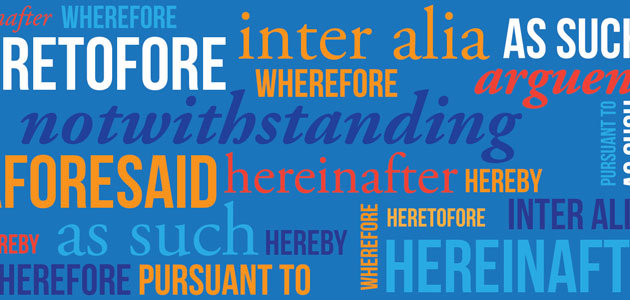 Ross Guberman, the acclaimed legal writing consultant and author of Point Made: How to Write Like the Nation’s Top Advocates and Point Taken: How to Write Like the World’s Greatest Judges, surveyed thousands of judges—ranging from those serving at the state trial court level to the justices on the U.S. Supreme Court—to find out their preferences (given anonymously) on various aspects of brief writing, including matters of style and formatting, word choice, use of case law, treatment of facts, and strategies for persuasion.
Ross Guberman, the acclaimed legal writing consultant and author of Point Made: How to Write Like the Nation’s Top Advocates and Point Taken: How to Write Like the World’s Greatest Judges, surveyed thousands of judges—ranging from those serving at the state trial court level to the justices on the U.S. Supreme Court—to find out their preferences (given anonymously) on various aspects of brief writing, including matters of style and formatting, word choice, use of case law, treatment of facts, and strategies for persuasion.
Guberman incorporated his findings into Brief Catch, a software program he is expecting to launch in January that will offer legal writers real-time suggestions for wording and organizational changes to their briefs.
Midway through 2017, he shared some of the results of his survey of judges in an article on his website, www.legalwritingpro.com, and, based on his findings, offered several pieces of advice—some of which will be familiar to readers of this column:
1. Use the Oxford (or “serial”) comma.
2. Put citations in the text, not in footnotes, unless the court says otherwise. As a compromise, Guberman suggests using legal writing guru Bryan Garner’s practice of including the caption, the court, and the year of the decision in the text and relegating the reference matter to the footnotes.
3. Put two spaces after periods.
4. Justify the right margin, or leave it ragged, but note that the latter is easier to read.
5. Use italics, not bold and never all caps, for emphasis, but do so sparingly.
6. Write numbers out only once. Less than 1 percent of the responding judges say they prefer numbers to be expressed with both the word and the numeral.
7. Define terms concisely and only when there is a possibility of confusion; use words, not acronyms, on second reference.
8. Use contractions cautiously, but be aware that the ground may be shifting. Only 37 percent prefer no contractions, but those who dislike contractions feel strongly about it.
9. Tone it down. Guberman says many judges call these common attack terms “annoying”:
- disingenuous
- clearly wrong
- baseless
- specious
- without merit
- frivolous
- unfortunately for [the other side]
- sanctionable
Finally, stop using the 34 words, phrases, and practices that judges most often say they dislike:
- accordingly
- aforesaid
- appellant/appellee (use parties’ names)
- arguendo
- as follows (“just use the colon”)
- as such
- clearly
- Comes now …
- concerning the matter of
- each and every
- for the sake of argument
- foregoing
- hereby
- hereinafter
- heretofore
- impact (as a verb)
- in view of the fact that
- inter alia
- it should be noted
- use of Latin
- notwithstanding
- owing to the fact that
- prior to
- pursuant to
- respectfully submits
- said (as an adjective)
- s/he or (s)he
- subsequent to
- that being the case
- the Court must …
- the fact that
- the instant case
- utilize
- wherefore
About the author
Attorney Savannah Blackwell is a former news reporter who covered government and politics for more than a decade, mostly in San Francisco. She can be reached at savannah.blackwell@gmail.com. Follow her on Twitter at @SavannahBinSF.

